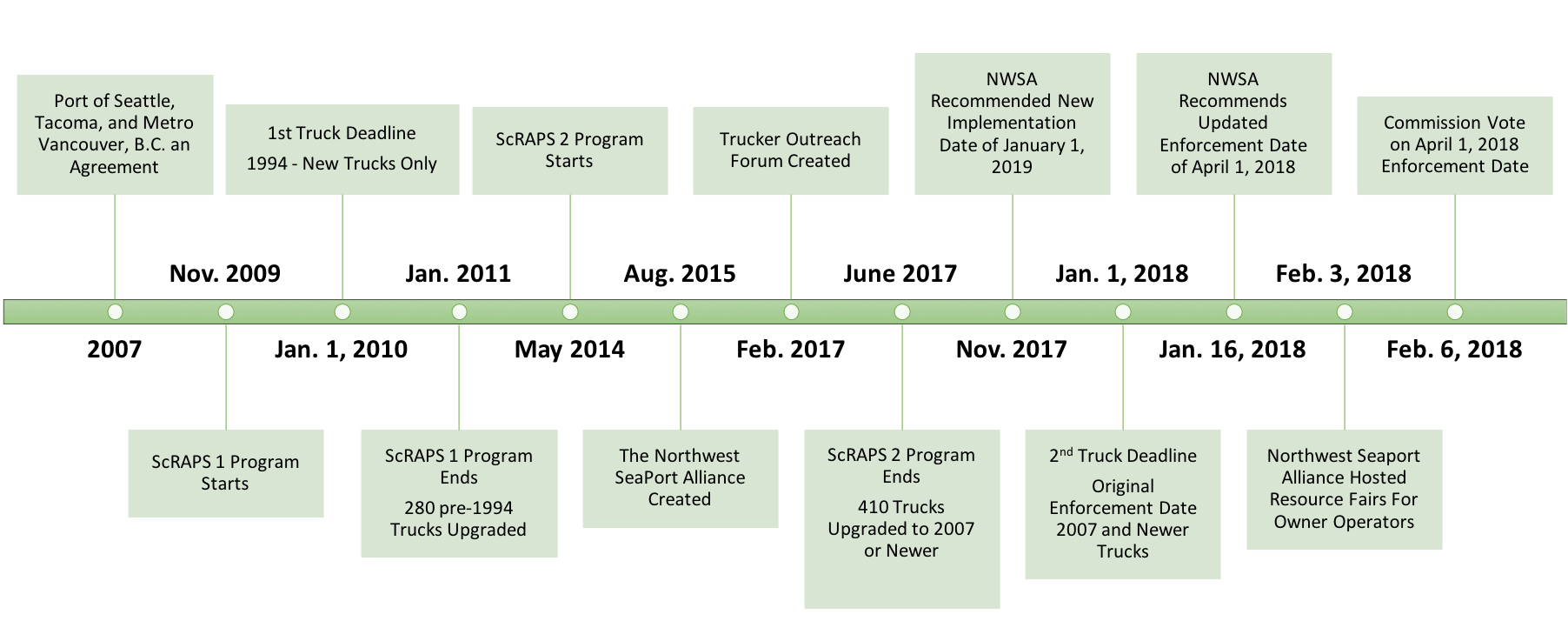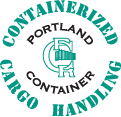Please take the time to fully read the email below. There has been an important development regarding Clean Trucks in the Pacific Northwest.
On February 6, 2018, the Port Commission for Port of Seattle and Port of Tacoma, unanimously voted to adopt the April 1st enforcement deadline as recommended by the Northwest SeaPort Alliance for the clean truck program. This decision was reached after an hour and a half of testimony from 40+ owner operators, The Washington Trucking Association, Cummins, and The Washington State Clean Air Agency. Much of the testimony from the owner operators focused on the increased cost and maintenance incurred when operating trucks with compliance emission systems.
In addition to the motion to adopt the recommended April 1, 2018, deadline the commissioners voted unanimously to support a $1,000,000 fund in support truck conversion. As well as a motion to authorize the Northwest SeaPort Alliance to amend the lease of four marine terminal operators to carry out the Clean Truck Program requirements. The specific Leases subject to this amendment are ITS (Husky), Ports America (TCT), Everport (PCT), and Washington United Terminals (WUT).
Recommended Motion:
- Contractually obligate the NWSA international marine terminal operators to limit truck entry to trucks with engines 2007 or newer, or trucks with equivalent emissions controls certified by the US EPA or the California Air Resource Board;
- And do so by the end of grace period date April 1, 2018, as extended from January 1, 2018 deadline, and;
- With additional provisions to allow a temporary deferral program (limited to December 31, 2018).
- A motion to amend requested by Commissioner Fred Felleman, passed unanimously, stipulating that the current clean truck standard of 2007 and newer, or trucks with equivalent emissions controls certified by the US EPA or the California Air Resource Board would be permitted access until 2025.
Proposed Measurable Milestones for Deferral Program:
- Must currently be serving the gateway
- Must indicate need and submit truck-financing information
- Must locate a compliant truck
- Must have operational truck no later than Jan 1, 2019
Portland Container is concerned with the current driver shortage, regionally and nationally, we may see a large number of owner operators and independent contractors who have historically served the Pacific Northwest drayage and intermodal sectors move to FTL and LTL options. Currently, these other sectors are offering higher rates, a lower bar to entry, and plentiful cargo.
You can view the testimony by clicking here clicking here.

- ScRAPS 2 Program - With a maximum payout of $27,000, 410 trucks were replaced using funds through a partnership with the Puget Sound Clean Air Agency and funding through DERA, CMAQ, and Department of Ecology grants.
- In February of 2017 the Trucker Outreach Forum was created to connect terminal operators, The Northwest SeaPort Alliance, industry stakeholders and trucking companies.
- On February 3, 2018, The Northwest Seaport Alliance hosted resource fairs in Tacoma and Seattle for the owner operator community.




